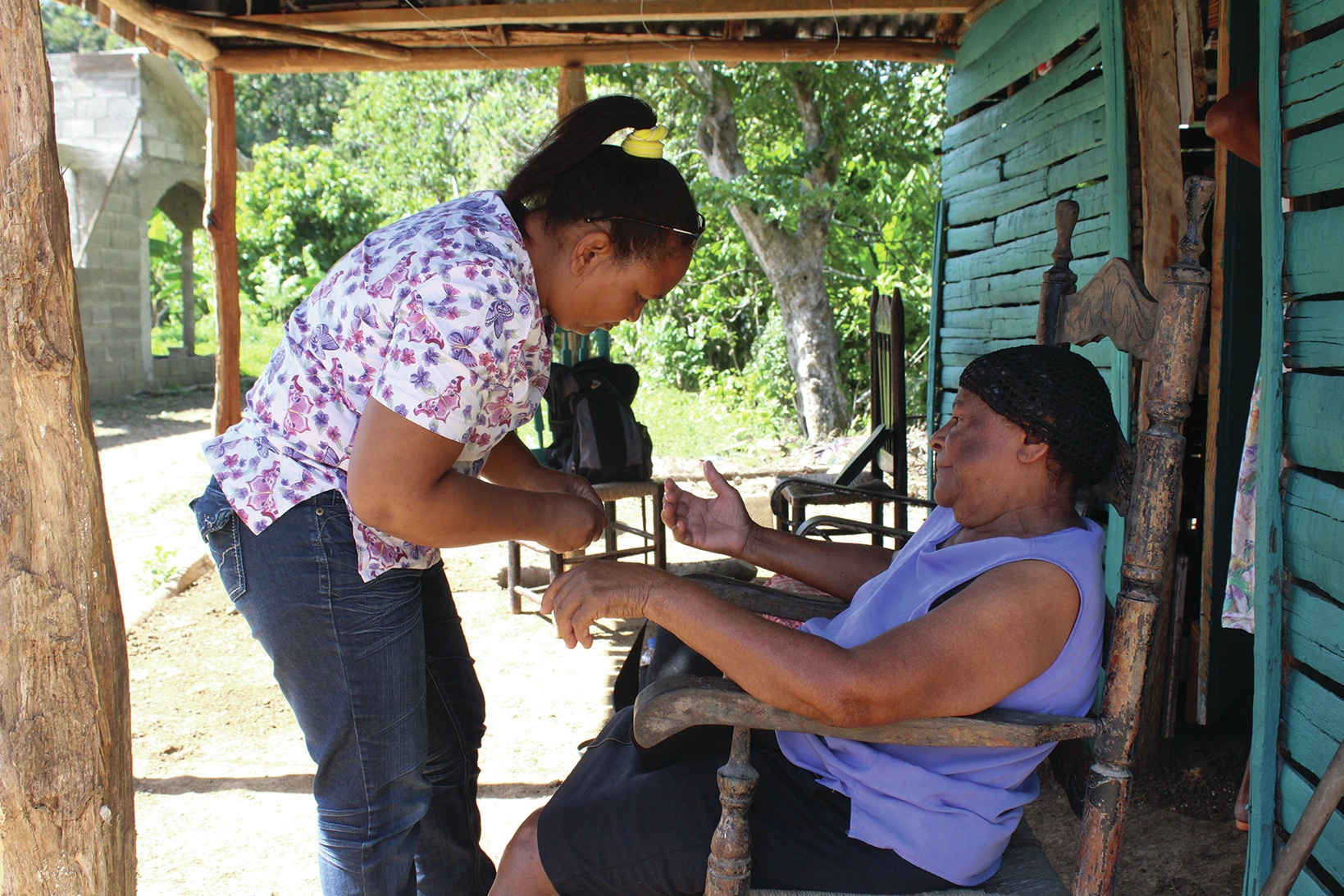Red Deer Express reporter Kalisha Mendonsa recently travelled to the Dominican Republic to do humanitarian work with the Kerolle Initiative for Community Health. This story describes some of her observations there.
Health care looks different all over the world, but especially in rural third-world communities.
The Kerolle Initiative for Community Health is a non-profit health organization in the Dominican Republic that specifically addresses health needs in rural communities. The program was created by Dr. Reginald Kerolle in 2006 and has grown to include several small villages on the northern coast of the Dominican Republic.
Kerolle and his team work tirelessly to provide various forms of vital health care in rural communities, including pre-natal and pediatric care, clinics for chronic disease and emergency and disaster response.
“I believe that health care is a human right, and this is why we want to provide health care to people who need it in order to reduce health disparities,” Kerolle said.
Kerolle and his team work in poor, rural communities in the north coast of the country that are known as bateys. The bateys were originally created for Haitian migrants to reside in as they worked in the sugar cane industry. This industry is largely gone now, and many are left in the Dominican Republic without any form of work so their access to health care is very limited.
As well, many of the communities Kerolle and his team work in are quite isolated from other communities, making their access to medicines that much more difficult. Kerolle said he first visited a batey in 2006, shortly after graduation from medical school.
“When we got to the batey we saw enormous sugar cane plantations, small houses and a lot of people from infants to elderly people. Those people were not living in a good conditions,” he said.
“They were struggling to get food on a daily basis. Most of the children had some health issues that couldn’t be solved and so did the adults. They had no water, no latrines, no sanitation. This is how those people had been living for years.”
Kerolle said this experience was quite difficult. He returned to the luxury neighbourhood where he was living in the City of Santiago, brimming with questions and ideas.
“I found myself at a mental intersection where I had to decide between moving to the U.S. or to help those people,” he recalled.
“I decided that someone had to do something – this is how I decided to take the initiative to create the organization that would be called later the Kerolle Initiative For Community Health. My goal was to provide free health care to the people living in that batey.”
At this time, Kerolle was a recent medical graduate student with no resources and no money to build the organization. He said that he and a group of friends began to contact medical labs to send donated medical supplies, which luckily came through.
Over the next few years, Kerolle relocated to the northern coast of the Dominican Republic in order to be closer to the communities that he wanted to serve. By 2009, he had made connections in North America to bring in more supplies and better medicines. Later that year, he began to accept interning medical students from North America where the students would learn about the Dominican health care system and volunteer in the different clinics.
Kerolle is passionate about his work and has grown the organization to include a wide variety of topics. Those care programs range from HIV and STI prevention and treatment to counselling and adult literacy programs.
“If a community isn’t healthy, the people won’t have a productive life,” Kerolle explained.
Kerolle and his team now have a permanent administration office in the City of Sosua. They operate community clinics in several northern coast bateys and have extended their work to better communities through education and research.
“There is a link between education and health – if someone has a middle or higher level of education, that person will understand more aspects of health. Reading allows people to get information about disease or healthy practices, like not drinking certain kinds of water,” Kerolle said.
Kerolle’s organization gathers research based on seven parameters of sustainability within communities: education, health, economy, food security, environmental security, political representation and personal security. As the Kerolle Initiative hosts health care clinics in the communities, members of the team also gather research towards these topics to plan for future development.
“Economy is very important. If we go into a community and there are no sustainable activities, we can say that there’s no development. If a person can’t work, there isn’t money flow. The person can’t send their children to school, and if they are sick they can’t have good health care,” Kerolle said.
He said there are many factors that influence health and can be affected by health. He said he notices the relationship between these topics, especially in rural communities. Kerolle and his team are proud to be providing the weekly services they do in the Dominican Republic, and monthly in Haiti.
The Kerolle Initiative for Community Health partners with universities in Canada and the United States to provide internships and travel opportunities for students. More information on the organization can be found on their facebook page by searching the Kerolle Initiative for Community Health.
kmendonsa@reddeerexpress.com



